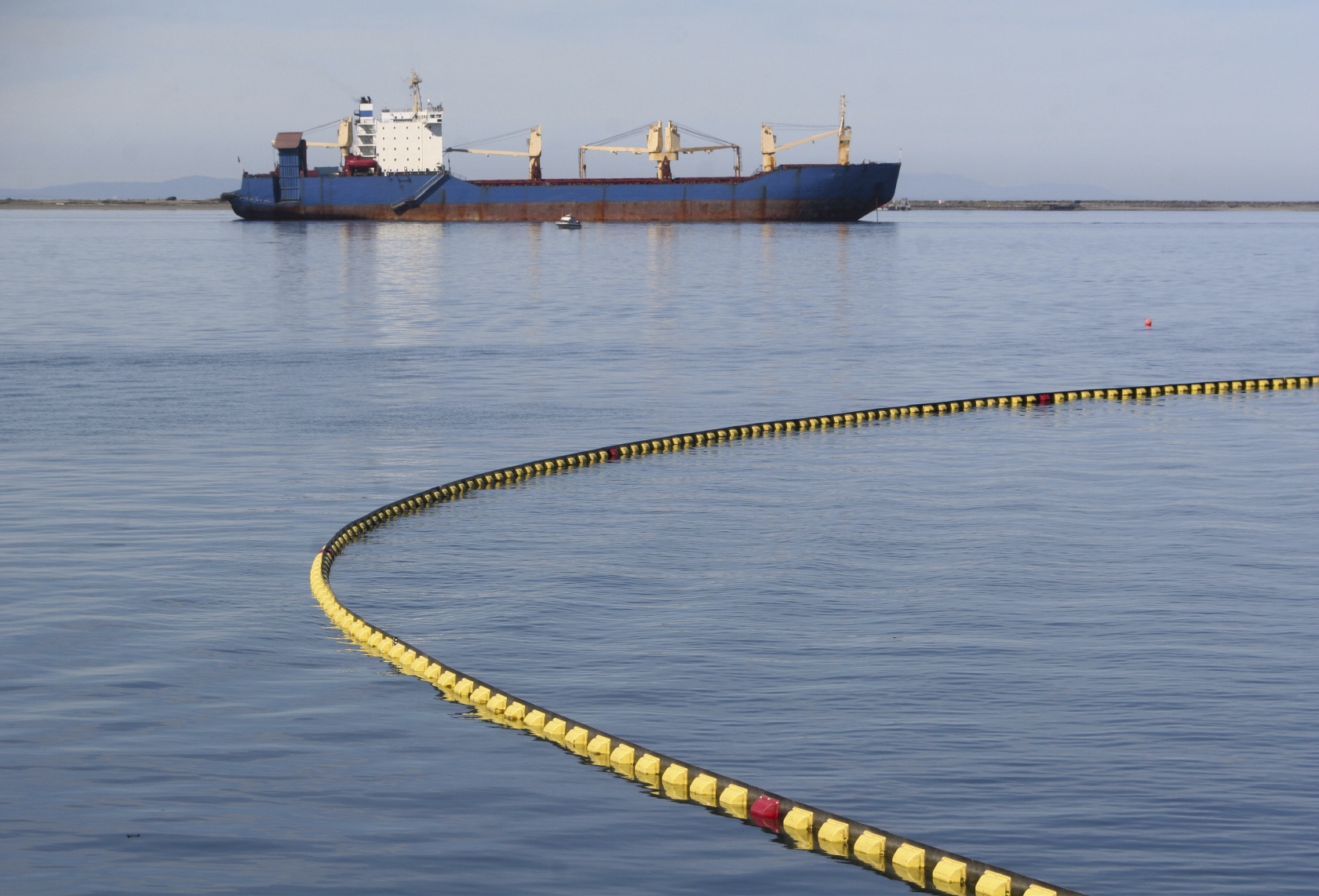The Royal Society of Canada released an expert panel report this week on The Behaviour and Environmental Impacts of Crude Oil Released into Aqueous Environments.
The 400-page report concluded that the overall impact of an oil spill, including the effectiveness of an oil spill response, depends more on the environmental characteristics and conditions (weather, waves, etc.) and the time lost before remedial operations than on the type of oil being transported. The experts note however that heavy forms of crude and bitumen are less likely to break down in water that lighter types of oil.
The panel also concluded that there are numerous research gaps on the environmental and socioeconomic impacts of oil spills in marine environments. The report sets out a list of research priorities to improve what is known about effects of oil spills on aquatic organisms, communities and ecosystems based on the identified gaps.
The Royal Society was formed by the government in 1883. Its studies are directed by either industry or the government. In this case, the expert panel was set-up in response to a request from the Canadian Energy Pipeline Association (CEPA) and the Canadian Association of Petroleum Producers (CAPP).
The panel was asked to review the state of the science on how various kinds of conventional and unconventional crude oils transported in North America interact with the surface waters and associated sediments (suspended, shoreline, ocean/lake/river floor) in marine, estuarine and freshwater settings under a wide range of environmental conditions.
“By better understanding the behaviour of various types of crude oil in water, we will be able to improve our spill preparedness and response capabilities. This is a priority for the oil and gas, and pipeline industries,” said Greg Stringham, vice president of oil sands for the Canadian Association of Petroleum Producers.
“Canada’s oil producers encourage research based on sound science. We strongly support this independent expert research to ensure producers and transportation providers continue to have the best information available to manage our products safely, from production to consumer delivery,” he said.










Also among the report’s findings;
“Heavy oils and diluted bitumens (e.g., Bunker C, dilbit, synbit and railbit), which have fewer components that dissolve in water or evaporate to the atmosphere are more resistant to evaporation and biodegradation and thus their potential long-term damage to the environment, waterfowl and fur-bearing animals is greater. Cleanup of heavy oils and bitumens is extremely difficult for both marine and inland spills because of their specific gravity, viscosity, flash point properties and high asphaltene content.”
“Thus, dilbit contains a higher proportion of the more toxic 3-to-5-ring alkyl PAH mixture than do conventional crude oils, so that chronic toxicity at a given concentration of TPAH may be greater than expected. Only one report has been published on the chronic embryo toxicity of dilbit. In this study with Japanese medaka, chronic toxicity across an array of crude and refined oils suggested that dilbit may be slightly more embryo-toxic than average. Until equivalent data for other species have been reported, any conclusions about the perceived toxicity of dilbit may be confounded by species differences in sensitivity to oil. There is some evidence dilbit elicits acute toxicity in benthic invertebrates and that its toxicity varies with sediment characteristics.”
Also among the report’s findings;
“Heavy oils and diluted bitumens (e.g., Bunker C, dilbit, synbit and railbit), which have fewer components that dissolve in water or evaporate to the atmosphere are more resistant to evaporation and biodegradation and thus their potential long-term damage to the environment, waterfowl and fur-bearing animals is greater. Cleanup of heavy oils and bitumens is extremely difficult for both marine and inland spills because of their specific gravity, viscosity, flash point properties and high asphaltene content.”
“Thus, dilbit contains a higher proportion of the more toxic 3-to-5-ring alkyl PAH mixture than do conventional crude oils, so that chronic toxicity at a given concentration of TPAH may be greater than expected. Only one report has been published on the chronic embryo toxicity of dilbit. In this study with Japanese medaka, chronic toxicity across an array of crude and refined oils suggested that dilbit may be slightly more embryo-toxic than average. Until equivalent data for other species have been reported, any conclusions about the perceived toxicity of dilbit may be confounded by species differences in sensitivity to oil. There is some evidence dilbit elicits acute toxicity in benthic invertebrates and that its toxicity varies with sediment characteristics.”
Your community can request environmentally friendly products be used in conjunction with public construction tenders for projects near your community waterways. Help usher in an era of environmentally friendly hydraulic oils for use in construction machines, and hydro electric facilities operating near precious waterways. Available at http://www.ottawaoils.ca (A family owned and operated oil business in the National Capital Region). Convert your machines to “GreenMachines” today, reduce C02 with fill for life bio hydraulic oils. OEM approved for CAT,JohnDeer, Parker, Palfinger,Liebherr, Bosch Volvo,Terex, and many more. 613-324-0848
Your community can request environmentally friendly products be used in conjunction with public construction tenders for projects near your community waterways. Help usher in an era of environmentally friendly hydraulic oils for use in construction machines, and hydro electric facilities operating near precious waterways. Available at http://www.ottawaoils.ca (A family owned and operated oil business in the National Capital Region). Convert your machines to “GreenMachines” today, reduce C02 with fill for life bio hydraulic oils. OEM approved for CAT,JohnDeer, Parker, Palfinger,Liebherr, Bosch Volvo,Terex, and many more. 613-324-0848